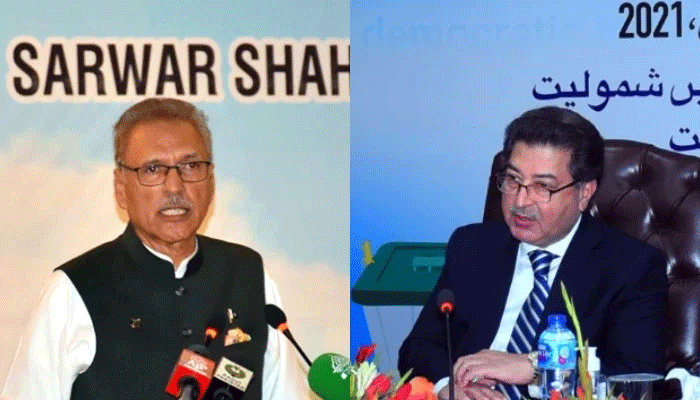CEC refuses to meet President Alvi for talks on elections date
LAHORE MIRROR — The chief election commissioner (CEC) has decided against meeting the president, in response to a letter Dr Arif Alvi wrote to Sikandar Sultan Raja inviting him for consultation on a date for elections.
According to the local media reports, this was decided in an important meeting of the Election Commission of Pakistan (ECP) to deliberate on the president’s letter written to the chief election commissioner (CEC).
The meeting was held at the ECP to decide when to meet the president in response to his letter.
On the other hand, Pakistan Tehreek-e-Insaf (PTI) and JUI-F delegations are also expected to reach the election commission today for consultations on the elections. The meeting was attended by the ECP secretary, members and the legal team.
It was also reported that the meeting discussed the president’s letter to the CEC. The legal team gave a briefing on the elections in the light of the Constitution and law.
Moreover, the election commission is also starting consultations with political parties from today. The PTI and JUI-F delegations have been invited by the ECP for a discussion on the elections today.
The commission has called the PTI at 2pm and the JUI-F at 3pm.
A day earlier, President Arif Alvi on Wednesday invited Chief Election Commissioner (CEC) Sikander Sultan Raja to hold a meeting with him today or tomorrow to fix an “appropriate date” for the general elections.
In a letter to the Election Commission of Pakistan’s (ECP) head, the president informed CEC Raja that it is liable to him to appoint a date for the elections under Article 48 (5) of the Constitution no later than 90 from the date of dissolution of the assembly.
“Foregoing in view, the chief election commissioner is invited for a meeting with the president today or tomorrow to fix an appropriate date,” stated the letter.
The Shehbaz Sharif-led government dissolved the National Assembly on August 9, while Sindh and Balochistan assemblies were also prematurely dissolved to allow the electoral authority to hold elections in the country within 90 days instead of 60 days if the legislature completed its constitutional tenure.

